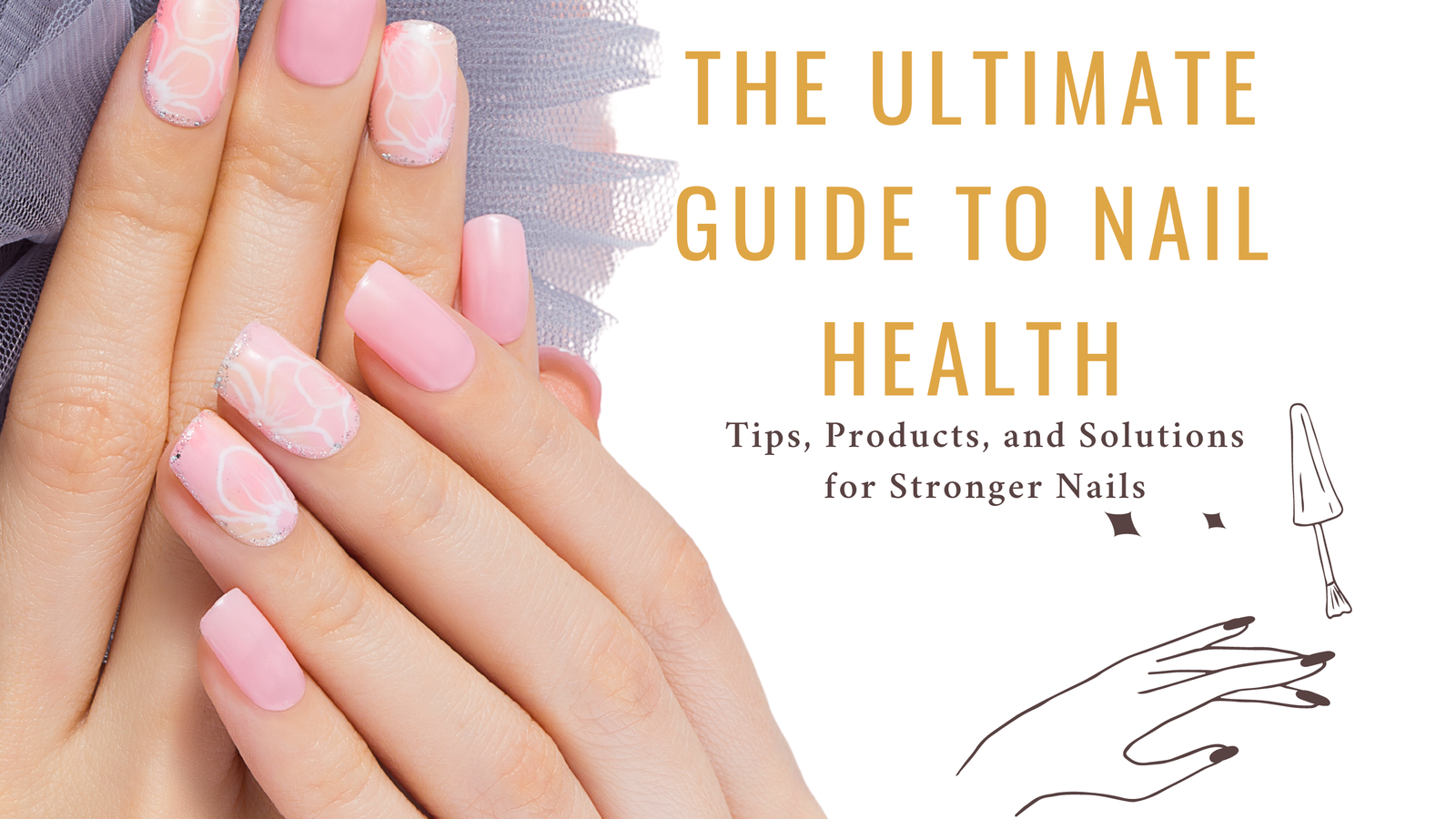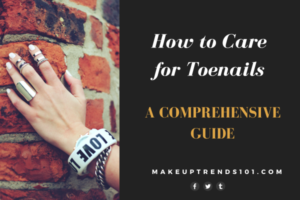Nail health is a vital component of overall well-being and personal hygiene. Healthy nails are not only aesthetically pleasing but also indicative of good health. In this article, we will explore essential tips and practices to maintain nail health, from proper hydration and protection to dietary considerations and regular nail care routines. By following these guidelines, you can ensure your nails remain strong, healthy, and beautiful, preventing common issues such as brittleness, breakage, and discoloration. Whether you’re looking to enhance your current nail care routine or address specific nail health concerns, these expert insights will provide you with the knowledge you need to achieve optimal nail health.
Table of Contents
Understanding Nail Structure and Growth
Nail health is integral to our overall well-being, and understanding the structure and growth of nails can help us maintain them better. This section delves into the anatomy of nails and the factors affecting their growth.
Nail Anatomy
Nails are composed of several parts, each playing a vital role in nail health. Here’s a breakdown of the main components:
- Nail Plate: This is the visible, hard part of the nail. Made of keratin, the nail plate protects the sensitive skin underneath.
- Nail Bed: Located beneath the nail plate, the nail bed is rich in blood vessels, giving the nail its pinkish color.
- Cuticle: The thin layer of skin at the base of the nail plate. It protects the new keratin cells as they form.
- Lunula: The half-moon-shaped area at the base of the nail. It is most visible on the thumbs and indicates the visible part of the nail matrix.
- Nail Matrix: This is where new nail cells are produced. The matrix is hidden under the cuticle.
Nail Growth Process
Nails grow from the matrix, where new cells are constantly formed. As these cells multiply, they are pushed forward, hardening and forming the nail plate. Here are some key points about nail growth:
- Average Growth Rate: Nails grow at an average rate of 3.5 millimeters per month. Fingernails tend to grow faster than toenails.
- Age Factor: Nail growth slows down as we age.
- Diet and Health: Adequate nutrition and good health are crucial for optimal nail growth. A diet rich in vitamins and minerals like biotin, vitamin E, and zinc supports healthy nails.
- External Factors: Environmental factors like exposure to harsh chemicals and frequent hand washing can impact nail health and growth.
Factors Affecting Nail Growth
Several factors can influence the rate and quality of nail growth, including:
- Genetics: Genetics play a significant role in determining nail growth rates and overall nail health.
- Health Conditions: Conditions like thyroid disorders, psoriasis, and fungal infections can affect nail growth and appearance.
- Medication: Some medications may impact nail growth, either slowing it down or causing changes in nail texture and color.
- Nutrition: A balanced diet ensures that your body gets the necessary nutrients to support nail growth. Biotin supplements, for example, are known to improve nail strength and growth.
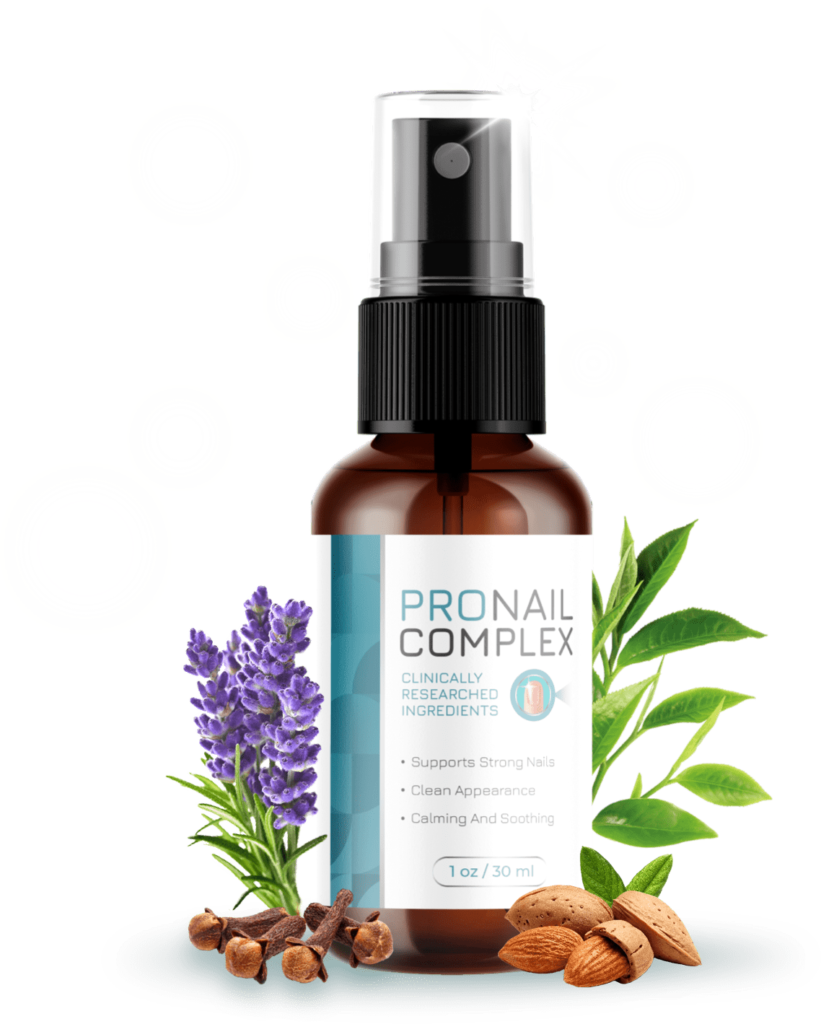
Click here to get 2 Bonuses with Pro Nail Complex Today!($50% OFF with 2 FREE E-books)
By understanding the structure and growth of nails, you can take better care of them and address any issues that may arise more effectively. Regular care and a balanced diet are key to maintaining healthy nails.
Common Nail Health Issues
Maintaining nail health is crucial for overall well-being, yet many people experience common nail health issues that can be both frustrating and uncomfortable. Understanding these issues and their causes can help you take better care of your nails and prevent problems from occurring.
Brittle Nails
Brittle nails are a common issue where the nails become dry, thin, and prone to splitting or breaking. This condition is often caused by:
- Frequent Exposure to Water: Excessive washing or prolonged contact with water can strip nails of their natural oils, leading to brittleness.
- Harsh Chemicals: Cleaning agents, nail polish removers with acetone, and other chemicals can weaken nails.
- Aging: As we age, nails tend to become more brittle and dry.
Nail Discoloration
Nail discoloration can appear in various forms, such as yellowing, white spots, or dark streaks. Common causes include:
- Fungal Infections: These often result in yellow or greenish nails and can be persistent if not treated.
- Injury: Trauma to the nail can cause dark streaks or bruising under the nail.
- Health Conditions: Conditions like diabetes, psoriasis, and certain respiratory issues can lead to changes in nail color.
Nail Fungus
Nail fungus is a common infection that can cause nails to become thickened, discolored, and brittle. Fungal infections are often caused by:
- Warm, Moist Environments: Fungi thrive in damp areas, such as public showers, swimming pools, and tight, sweaty shoes.
- Poor Hygiene: Not keeping feet and nails clean and dry can increase the risk of fungal infections.
- Compromised Immune System: People with weakened immune systems are more susceptible to nail fungus.
Nail Psoriasis
Nail psoriasis affects people with psoriasis, leading to pitting, discoloration, and thickening of the nails. Key characteristics include:
- Pitting: Small dents or pits on the nail surface.
- Onycholysis: Separation of the nail from the nail bed, causing a white or yellowish appearance.
- Thickening: The nail may become thick and irregularly shaped.
Ingrown Toenails
Ingrown toenails occur when the edge of a toenail grows into the surrounding skin, causing pain, redness, and sometimes infection. Common causes include:
- Improper Nail Trimming: Cutting nails too short or rounding the edges can encourage ingrowth.
- Tight Footwear: Shoes that squeeze the toes can force nails to grow abnormally.
- Injury: Trauma to the toe can lead to ingrown nails.
Daily Nail Care Routine for Healthy Nails
Maintaining nail health requires a consistent and effective daily nail care routine. By following a few simple steps, you can ensure your nails stay strong, healthy, and beautiful. This guide outlines a comprehensive routine for optimal nail health.
Keep Nails Clean and Dry
Keeping your nails clean and dry is the first step to maintaining healthy nails. Moisture and dirt can lead to infections and weaken the nails. Here’s how to keep them clean:
- Wash Regularly: Use a gentle soap and water to wash your hands and nails. Pay special attention to the area under the nails.
- Dry Thoroughly: After washing, make sure to dry your hands and nails completely. Moisture trapped under the nails can cause fungal infections.
Moisturize Your Nails and Cuticles
Just like your skin, your nails and cuticles need regular moisturizing to stay healthy and prevent dryness and brittleness.
- Use Hand Cream: Apply a nourishing hand cream or lotion after washing your hands.
- Cuticle Oil: Apply cuticle oil daily to keep cuticles soft and hydrated. This also promotes healthy nail growth.
Trim Nails Regularly
Regular trimming helps prevent nails from breaking and keeps them looking neat and healthy.
- Use Nail Clippers or Scissors: Trim your nails straight across, then round the tips in a gentle curve.
- File Smoothly: Use a nail file to smooth the edges and prevent snagging.
Avoid Harsh Chemicals
Exposure to harsh chemicals can weaken your nails and lead to various nail health issues. To protect your nails:
- Wear Gloves: When cleaning or handling harsh chemicals, wear protective gloves to shield your nails.
- Use Gentle Products: Choose nail polishes and removers that are free from harmful chemicals like formaldehyde and acetone.
Practice Good Nail Hygiene
Good hygiene practices are essential for maintaining healthy nails.
- Don’t Bite Your Nails: Nail-biting can damage the nail bed and introduce bacteria.
- Avoid Using Nails as Tools: Don’t use your nails to open cans, peel off stickers, or perform other tasks that could cause damage.
Maintain a Balanced Diet
A healthy diet contributes significantly to nail health. Ensure your diet includes:
- Biotin: Found in eggs, nuts, and seeds, biotin promotes nail strength.
- Vitamins and Minerals: Vitamins A, C, E, and minerals like zinc and iron are crucial for healthy nail growth.
Top Products for Nail Health
Maintaining nail health requires the right products to strengthen, moisturize, and protect your nails. Here are some top recommendations to help you achieve and maintain healthy nails.
Nail Strengtheners
Nail strengtheners are essential for reinforcing weak or brittle nails. Here are two highly recommended options:
- OPI Nail Envy: This nail strengthener is formulated with hydrolyzed wheat protein and calcium, which help strengthen and lengthen nails. It’s a top choice for those looking to improve nail health quickly.
- Sally Hansen Hard as Nails: Known for its affordability and effectiveness, this product creates a hard, smooth shield on the nails, preventing them from breaking and peeling.
Cuticle Oils
Cuticle oils are vital for keeping the cuticles and nails moisturized, promoting healthy nail growth.
- CND SolarOil: A blend of jojoba oil and vitamin E, this cuticle oil deeply penetrates to promote flexibility and strength.
- Bee Natural Cuticle Oil: Made with natural ingredients like olive oil and vitamin E, this vegan oil keeps your cuticles hydrated and healthy.
Nail Moisturizers
Nail moisturizers are essential for preventing dryness and brittleness. They keep your nails hydrated and resilient.
- Hard As Hoof Nail Strengthening Cream: This cream transforms dry, flaky, and cracked nails by providing the moisture they lack, leaving behind a soothing coconut smell.
- Barielle Nail Strengthener Cream: This cream is perfect for restoring moisture to dry, brittle nails, originally developed to condition the hooves of thoroughbred racehorses.
Nail Supplements
Nail supplements provide essential nutrients that support nail health from the inside out.
- ProNail Complex: An optimally dosed proprietary blend of oils and vitamins, carefully mixed to complement one another into a powerful nail strengthening formula.
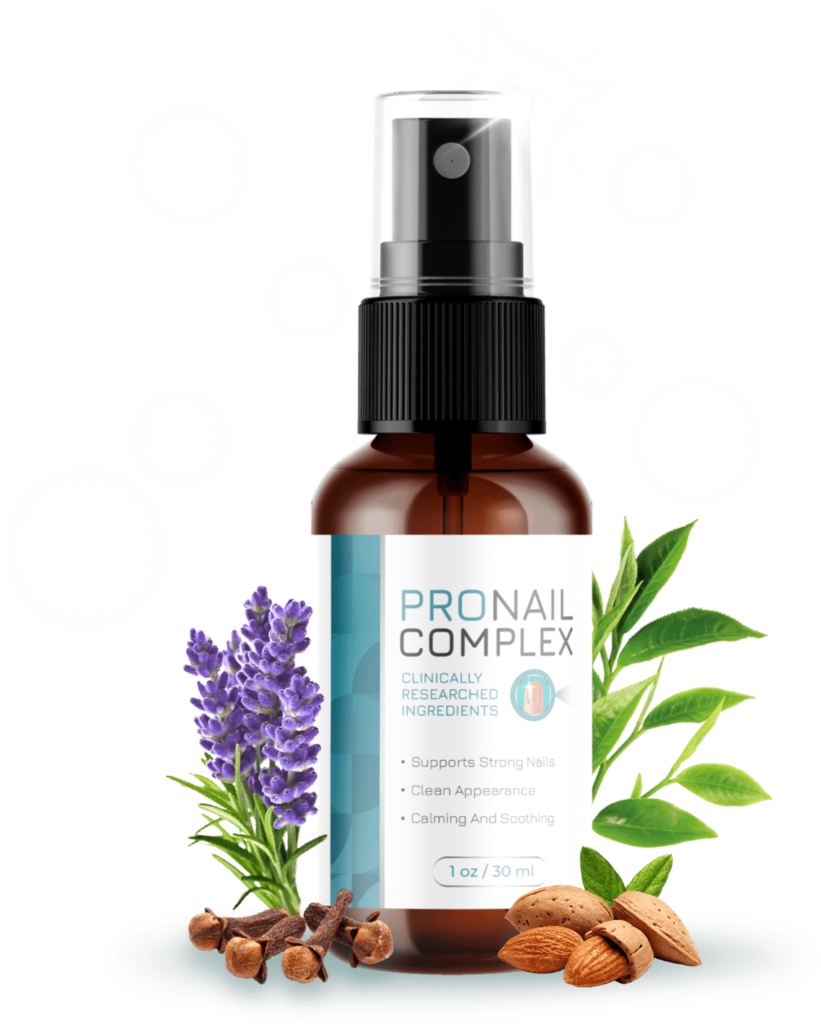
Click here to get 2 Bonuses with Pro Nail Complex Today!($50% OFF with 2 FREE E-books)
- Hum Nutrition Killer Nails: A biotin supplement specifically designed to strengthen and grow nails faster.
Natural Remedies for Nail Health
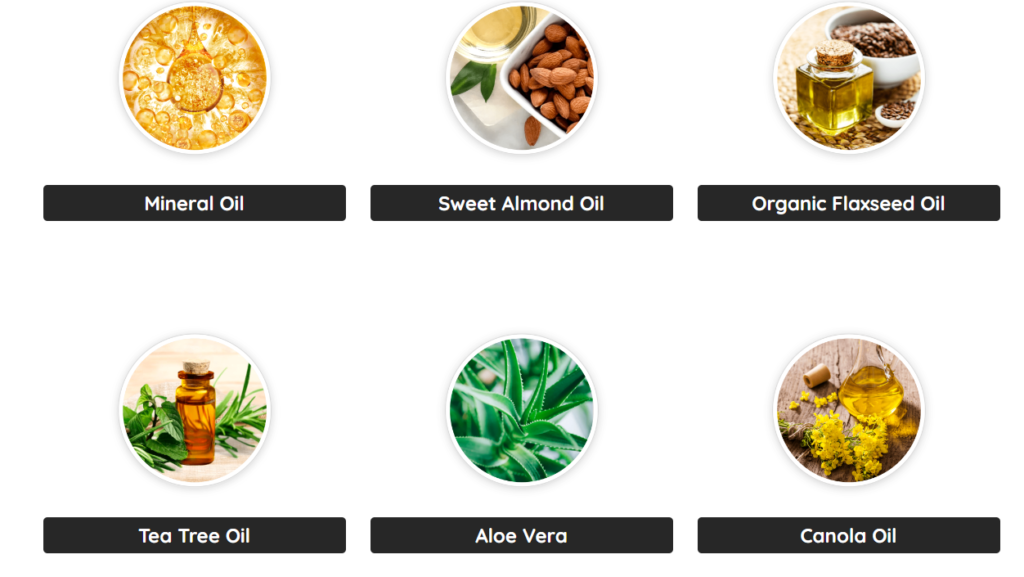
Achieving healthy nails doesn’t always require commercial products. There are several natural remedies that can help you maintain strong, beautiful nails. Here are some effective natural treatments:
Olive Oil
Olive oil is a natural moisturizer that can penetrate the nail and cuticle, providing much-needed hydration and strength.
- How to Use: Warm a small amount of olive oil and massage it into your nails and cuticles for 5-10 minutes. For best results, do this daily before bed.
Coconut Oil
Coconut oil has antifungal properties and is an excellent moisturizer for brittle and cracked nails.
- How to Use: Apply a small amount of coconut oil to your nails and cuticles, massaging gently. Repeat this 2-3 times daily.
Lemon Juice and Baking Soda
Lemon juice can help whiten discolored nails, while baking soda acts as a gentle exfoliant to remove stains.
- How to Use: Mix one tablespoon of lemon juice with two tablespoons of baking soda to form a paste. Apply the paste to your nails, leave it on for 10 minutes, then rinse off with warm water.
Apple Cider Vinegar
Apple cider vinegar is rich in nutrients and has antifungal properties that can help treat nail infections.
- How to Use: Mix equal parts of apple cider vinegar and water in a bowl. Soak your nails in the solution for 10-15 minutes daily.
Tea Tree Oil
Tea tree oil has strong antiseptic and antifungal properties, making it effective for treating nail fungus.
- How to Use: Dilute tea tree oil with a carrier oil (like olive oil) and apply it to the affected nails using a cotton ball. Leave it on for 10 minutes, then rinse off. Do this twice daily.
Biotin-Rich Foods
Biotin is essential for nail health, and consuming biotin-rich foods can strengthen your nails.
- Foods to Include: Eggs, almonds, sweet potatoes, spinach, and salmon.
Diet and Nutrition for Nail Health
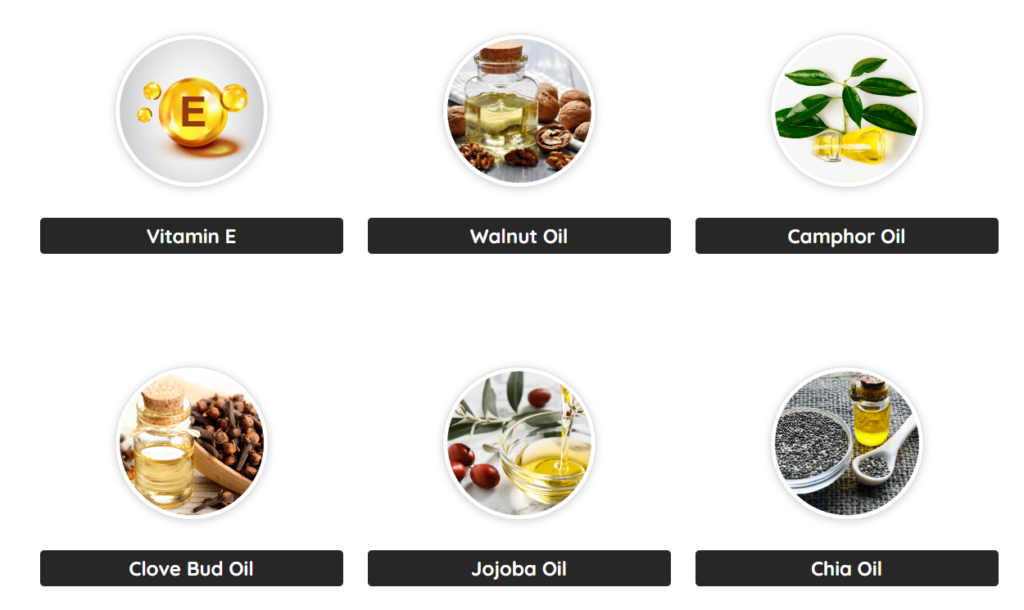
A balanced diet rich in essential nutrients is crucial for maintaining strong and healthy nails. Here are key nutrients and foods that promote optimal nail health:
Biotin
Biotin, a B vitamin, is essential for nail strength and growth.
- Sources: Eggs, almonds, sweet potatoes, and spinach.
Protein
Protein is a building block of keratin, the protein that makes up nails.
- Sources: Lean meats, fish, beans, and legumes.
Iron
Iron deficiency can lead to brittle nails and other nail abnormalities.
- Sources: Red meat, poultry, lentils, and spinach.
Zinc
Zinc is vital for cell growth and division, which is crucial for nail growth.
- Sources: Oysters, beef, pumpkin seeds, and chickpeas.
Omega-3 Fatty Acids
Omega-3 fatty acids keep your nails moisturized and prevent dryness.
- Sources: Fatty fish (like salmon), walnuts, and flaxseeds.
Vitamin E
Vitamin E is an antioxidant that helps protect nails from damage.
- Sources: Nuts, seeds, and leafy green vegetables.
Vitamin A
Vitamin A promotes healthy cell growth and helps maintain nail strength.
- Sources: Carrots, sweet potatoes, and kale.
Frequently Asked Questions (FAQ)
Maintaining nail health can sometimes be challenging, and many people have questions about the best practices. Here are some frequently asked questions and expert answers to help you keep your nails in top condition.
Why do my nails keep breaking, and how can I stop them from breaking?
Nail breakage can be caused by various factors including dehydration, poor nutrition, and frequent exposure to harsh chemicals. To prevent nail breakage:
- Hydrate: Regularly moisturize your nails and cuticles with oils or creams.
- Protect: Wear gloves when doing household chores involving water or chemicals.
- Strengthen: Use a nail strengthener to provide a protective layer.
Does gel polish damage nails?
Gel polish itself doesn’t damage nails, but improper application and removal can. To protect your nails:
- Proper Removal: Avoid peeling off gel polish. Instead, have it professionally removed.
- Maintenance: Use cuticle oil to keep nails flexible and prevent them from becoming brittle.
How can I repair a split nail?
For a temporary fix, you can use a DIY silk wrap:
- Method: Cut a small piece of a dry teabag and apply nail glue to the broken part of the nail. Place the teabag piece over the glue and seal it with more glue. Buff gently once dry and apply a top coat.
What can I do to strengthen my nails?
Strengthening your nails involves both internal and external care:
- Diet: Ensure your diet includes biotin, iron, zinc, and vitamins B-12 and E. Foods like nuts, seeds, leafy greens, and oily fish are beneficial.
- Products: Use a nail strengthener regularly. OPI Nail Envy is a popular choice.
Can nail biting affect my ability to get gel nails?
Yes, you can still get gel nails even if you bite your nails. In fact, gel nails can help deter the habit:
- Benefits: Gel polish can disguise damaged edges and encourage healthy nail growth. Discuss with your technician about using hard gel formulas to add structure.
How can I protect my nails during cold weather?
Cold weather can make nails brittle and more prone to breaking:
- Hydrate: Use hand and nail moisturizers daily.
- Protect: Wear gloves to keep your hands and nails warm and to improve blood flow.
By following these expert tips and frequently asked solutions, you can maintain strong and healthy nails. Regular hydration, proper diet, protective measures, and appropriate products are key to good nail health. For more detailed insights, refer to sources like NAILS Magazine and Vitabiotics (Vitabiotics) (NAILS Magazine) (BeautyBigBang).
Conclusion
Nail health is a crucial aspect of overall well-being. Maintaining strong, healthy nails involves a combination of proper care practices, dietary considerations, and attention to changes in nail appearance.
Key Takeaways for Maintaining Nail Health:
- Hydration: Regularly moisturizing your nails and cuticles helps prevent dryness and brittleness. Products like cuticle oils are excellent for daily use.
- Protection: Wearing gloves while doing household chores, such as washing dishes or cleaning, protects your nails from harsh chemicals and excessive moisture.
- Balanced Diet: A diet rich in essential nutrients like biotin, iron, zinc, and vitamins A, C, and E is crucial for nail strength and growth. Foods like eggs, nuts, leafy greens, and oily fish are beneficial.
- Proper Nail Care: Regularly trimming and filing your nails, avoiding harsh chemicals, and using proper techniques for applying and removing nail products are essential practices.
- Observation: Pay attention to any changes in your nails, such as discoloration, ridges, or unusual shapes. These changes can indicate underlying health issues that may require medical attention.
Final Thoughts
Maintaining nail health is not just about appearance; it’s an integral part of personal hygiene that contributes to overall health. By incorporating these tips into your daily routine, you can prevent common nail issues and promote healthy nail growth. Regular hydration, protection, a balanced diet, and proper nail care practices will ensure your nails remain strong and beautiful.
By following these guidelines and maintaining a consistent nail care routine, you can achieve and sustain healthy, strong nails. Embrace these practices and enjoy the confidence that comes with well-cared-for nails.

Stay Updated
For more beauty tips, trends, and product recommendations, make sure to subscribe to our newsletter. You’ll get all the latest updates and exclusive deals directly to your inbox. Also, feel free to check our other blogs HERE!
You can also follow us on social media!

